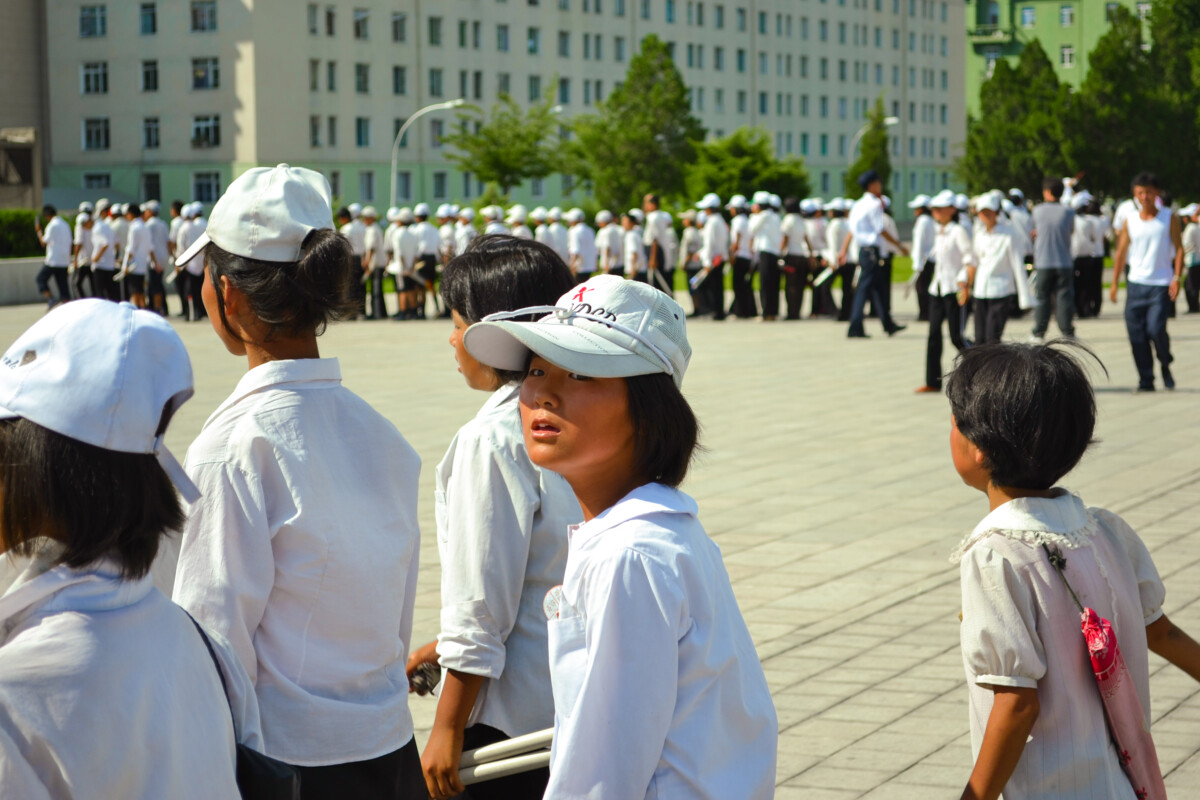The new generation, a quiet awakening amid control

North Korea’s young generation is changing. Though still under strict surveillance, questions about the regime and a yearning for a different world are quietly growing in the hearts of young people.
USB drives, South Korean dramas, and foreign music smuggled from abroad are more than mere entertainment to them. They are becoming seeds of new thought.
When you look at teenagers and people in their 20s and 30s in North Korea, you can sense something is different about them. Their elders were raised to believe and obey whatever the Party dictated, faithfully following what they learned in textbooks. But in recent years, things have begun to shift.
My friends who secretly watched South Korean dramas started asking, “South Koreans speak the same language as us — why do they live so freely?” Others, after hearing foreign songs, came to realize, “The world is much bigger than I thought.” For them, outside information wasn’t just fun. It became a mirror that made them reflect on their own reality.
Most outside content enters North Korea via USB sticks or SD cards, while a lucky few, like those in my hometown near the southern border, can catch glimpses of South Korean TV and radio broadcasts. Storage devices smuggled in from China are traded in secret. These contain South Korean dramas, news, YouTube clips, foreign films, and more. Young people huddle under blankets late at night, secretly watching these videos, peeking into the world beyond. I did the same. That experience becomes a key that unlocks a new framework of thinking.
“So South Korea isn’t the poor, corrupt society we were told it was.” “Foreigners don’t bow to their leaders.” As these realizations accumulate, the regime’s propaganda gradually loses its grip.
Of course, the risks are enormous. Anyone caught watching foreign media faces public criticism, forced labor, prison, even public execution. Yet people continue to seek out information. That’s how deep their longing for freedom runs.
Ideological censorship is still very much a part of daily life. Students are required to memorize the revolutionary histories of Kim Il-sung and Kim Jong-il. But within that rigid framework, the younger generation has developed a secret language. They share outside information using coded phrases like, “Did you hear about that thing?” Instead of saying “South Korea,” they refer to it as “the country where people can eat and live.” Outwardly, they conform. But inwardly, they are beginning to see the world differently.
It’s not so much dissatisfaction as it is an awakening in silence. Even if they live as if nothing is wrong on the surface, deep down, they all know.
The Kim Jong-un regime fears this change. That’s why it’s tightening its grip even further. There are ideological re-education programs targeting youth, random inspections of phones and televisions, and even “morality inspection squads” formed within schools to intensify surveillance.
But it’s already too late to stop the generational shift. Information spreads like a contagion, and thoughts cannot be controlled. The moment a young person asks why they have to live like this, there is the beginning of change.
North Korea’s youth may appear obedient on the outside, but inside, they are transforming. They are no longer fully indoctrinated. Even under control, they have begun to think, compare, and question for themselves.
Change in North Korea will not begin with top-down political reform, but with a grassroots awakening of consciousness. And at the center of that awakening is the younger generation.
I believe that the seeds of change will one day become a powerful wind, strong enough to sweep away the darkness that still hangs over North Korea.
- What Venezuela taught me about North Korea - January 10, 2026
- Unusually, no mention of South Korea or the U.S. in Kim Jong-un’s new year address - January 6, 2026
- Will Kim Ju-ae be anointed as the successor this year? - January 5, 2026

